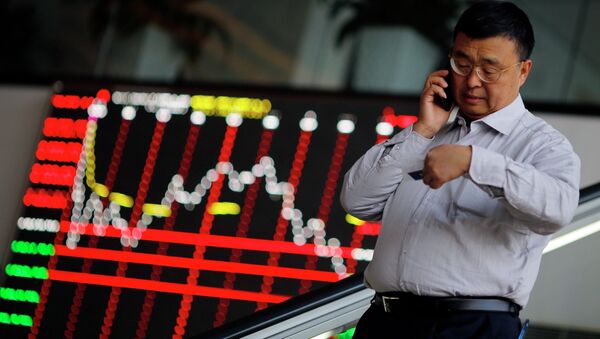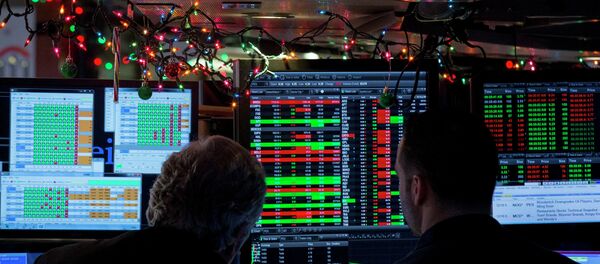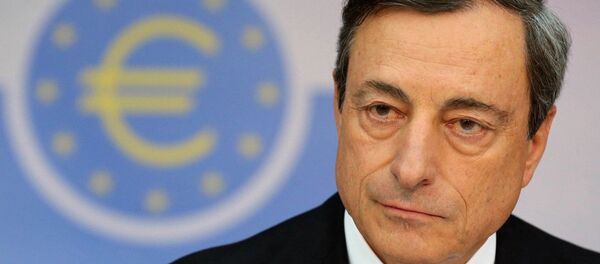As a result of a more dovish Fed expectations, world’s markets posted record gains in late Monday to early Tuesday trading, with mainland China climbing to its highest since the onset of the global economic crisis in 2008, pushing the Eurozone’s currency up against the dollar. Meanwhile in Japan, today’s decision of the Bank of Japan (BoJ) to keep monetary stimulus in place also added to a boisterous rally in equities.
Stock markets in Asia-Pacific posted significant gains on Tuesday after a solid rally on Wall Street,as low US inflation has lead investor to assume the Fed will keep loose monetary policy in place, allowing cheaper dollar-denominated liquidity to aid the economy for some more time.
MSCI Index of APEX shares sans Japan ended the day 0.7% up, as in mainland China shares added 0.9% on the average, hitting their 7-year highs. The drivers behind today’s Asian gains have been the Monday’s rally on Wall Street, where all three major indices advanced 1% each, as well as Beijing’s decision to implement more monetary stimulus in order to fend off the dire effects of the ongoing slowdown in the nation’s economy. China’s markets might be experiencing a bullish drive similar to that in the US in 2009, when Federal Reserve announced its unprecedented unorthodox monetary stimulus program.
The Shanghai Composite Index rose 1.6% to its highest since May 2008, with greatest gains in transportation and infrastructure sectors. The index had declined from 2009 through to 2013, rebounding steadily since last year by 73% as mainland China’s financial sector has been experiencing a sharp surge in passive assets’ valuation as productive economy has been losing its momentum.
The CSI 300 advanced by 1.4%, in Hong Kong, Hang Seng China Enterprises Index added 0.2%. However, the general Hang Seng retreated 0.2%, as only the mainland-linked equities are now in demand: the influx of money provided by Beijing will not benefit Hong Kong’s businesses (directly at least), and investors know it.
"Although the ECB is giving the bulls a strong impetus to take markets higher, there’s a natural reticence to do so just ahead of the Fed meeting where they may set markets up for a June rate hike," Jonathan Sudaria of Capital Spreads said.
Oil rebounded slightly after significant losses in valuation of the previous days. US WTI crude is hovering just above its 6-year low amidst oversupply, at $43.75/bbl, while Brent crude is steady somewhat, at $54.06/bbl, which is 0.2% up.
In Australia, shares are rallying as the commodity-dependent nation is loosening its monetary policy as well. The Reserve Bank of Australia said it would take on a yet another interest rate cut, resulting in Australian equities adding 0.8% on the average. As the down under nation is joining the global cheaper-liquidity club, the Australian dollar is set to depreciate, rendering Australian goods more competitive. However, this will only add to the ongoing slump in global commodities prices, and while developed nations like Australia are strong enough to stand, most of emerging economies are being hurt badly.
Nonetheless, we should wait and see for the outcome of the Fed meeting, as some of the regulator’s cautiousness anticipations might prove premature. As is, if the Fed confirms its commitment to hike rates in June, dropping the word ‘patient’ from its timing vocabulary, the dollar will continue its advance, and the US isolationism is going to become firmer. Yet, in case Fed announces the economy is not strong enough, more monetary easing in the rest of word will prove useless. However, both scenarios are a win-win for Wall Street in given circumstances, as tighter regulation lures a lot of foreign investment, while looser policies simply provide the market with a lot of cheap domestic liquidity.







